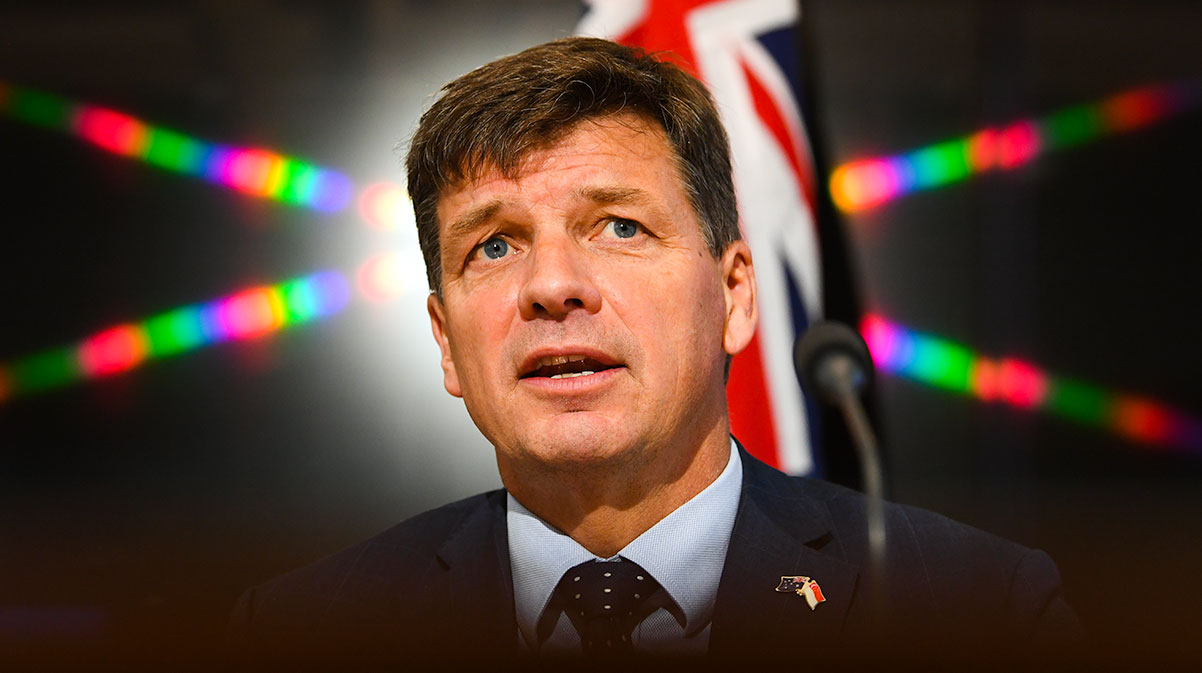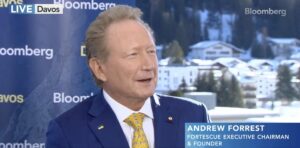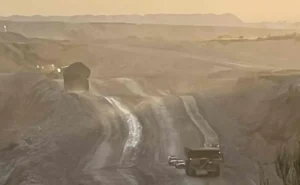Federal energy and emissions reduction minister Angus Taylor has appointed yet another former fossil fuel executive to a key government clean energy body,
On Wednesday, Taylor formally announced that he had appointed former oil and gas executive Katherine Vidgen to the board of the Clean Energy Regulator. Vidgen served as the founding chair of oil and gas company Quadrant Energy from 2015 until Santos acquired it in 2018.
Vidgen currently serves as the global head of energy principal at Macquarie Capital, where she has overseen the banks investments in a range of energy projects, including fossil fuel and clean energy investments.
The Clean Energy Regulator oversees the implementation of a number of key clean energy and emissions reduction policies, including the federal Renewable Energy Target, the Emissions Reduction Fund and the National Greenhouse and Energy Reporting Scheme.
Taylor said that Vidgen’s experience would bring new skills to the Clean Energy Regulator board.
“Ms Vidgen’s appointment will further strengthen the high level of skills and experience of the Clean Energy Regulator’s Board and ensures the schemes the regulator administers continue to support Australia’s emissions reduction goals while strengthening existing industries and driving job creation,” Taylor said in a statement.
But the appointment was slammed by Greenpeace Australia, which said the appointment of yet another fossil fuel sector to oversee clean energy programs was akin to putting a ‘fox in charge of the chickens’.
“When you put a gas producer in charge of emissions reduction, it’s likely that the solution will involve gas,” spokesperson for Greenpeace Australia Pacific Fiona Ivits said.
“Appointing a gas boss like Katherine Vidgen to the Clean Energy Regulator is like putting a fox in charge of the chickens. Gas is a fossil fuel that’s driving dangerous climate change, and has no place in Australia’s clean energy transition.”
Soon after forming government in 2013, the Coalition government attempted to abolish a number of government clean energy and climate change agencies. While it succeeded in some instances, winding up the Climate Commission for example, it was prevented from abolishing many of them by an uncooperative Senate.
The Morrison government has instead sought to appoint a number of like-minded allies to their boards. Vidgen’s appointment is the latest in a flurry of appointments made by Taylor to install a range of former colleagues, friends and fossil fuel executives to key government agencies responsible for overseeing climate change and clean energy programs.
Last year, Taylor appointed a former political adviser, John Hirjee, co-founder and director of Coalition aligned consultancy BAEconomics, Anna Matysek, and personal friend Justin Punch to the board of the Australian Renewable Energy Agency.
Earlier this year, Taylor overhauled the board of the Climate Change Authority, an independent advisory body originally tasked with providing guidance to the federal government on climate science and appropriate emissions reduction targets.
Taylor placed the former CEO of Origin Energy and president of the Business Council of Australia, Grant King, as its new chair. Appointed alongside King was Susie Smith, a former long time Santos executive who has served as head of the Australian Industry Greenhouse Network, a lobby group heavily aligned with the fossil fuel industry.
These appointments all followed the Morrison government stacking the National Covid-19 Coordination Commission (NCCC), responsible for guiding Australia’s economic response to the Covid-19 pandemic, with executives from the oil and gas industries.
The NCCC was the architect of the ‘gas fired’ recovery approach embraced by the Morrison government and which has been used as justification for pouring millions of new subsidies into the fossil fuel sector.
On Wednesday, Taylor also announced that he had appointed the director of the Sydney Institute of Agriculture, professor Alexander McBratney, to the Emissions Reduction Assurance Committee for a period of three years.
McBratney will join former deputy CEO of the Minerals Council of Australia, David Byers, who chairs the committee and controversial economist Brian Fisher, the other co-founder of the Coalition’s preferred emissions modeller BAEconomics, on Emissions Reduction Assurance Committee.
The Emissions Reduction Assurance Committee has oversight of the methods used to measure carbon offsets and will be tasked with developing methodologies to recognise carbon offsets from the government’s preferred technologies, including carbon capture and storage.
Apart from Byers, another former deputy CEO of the Minerals Council of Australia, John Kunkel, now serves as chief of staff for Morrison, and a former CEO of the Minerals Council, Brendan Pearson, is his senior trade advisor.







